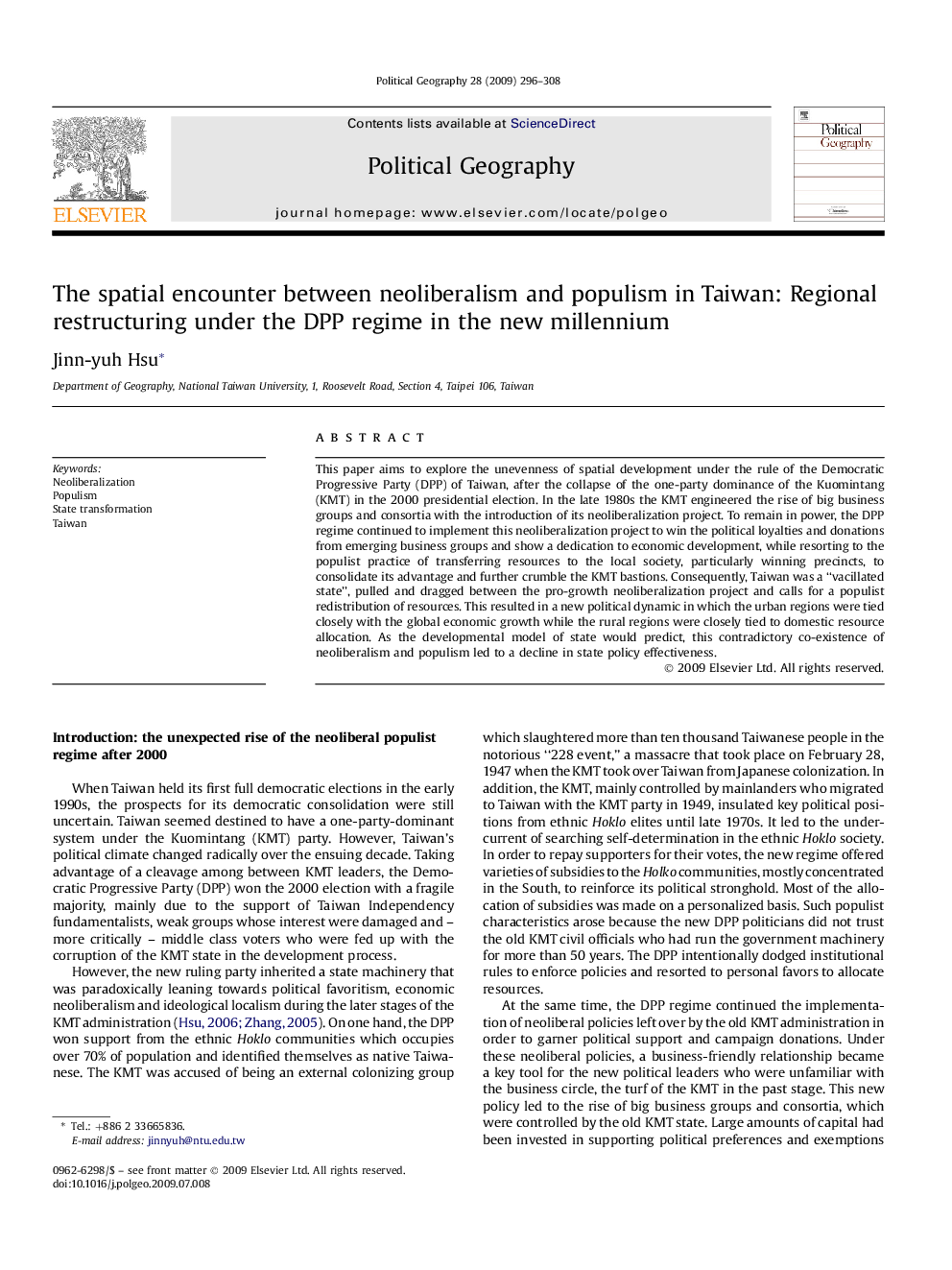| کد مقاله | کد نشریه | سال انتشار | مقاله انگلیسی | نسخه تمام متن |
|---|---|---|---|---|
| 1062285 | 947950 | 2009 | 13 صفحه PDF | دانلود رایگان |

This paper aims to explore the unevenness of spatial development under the rule of the Democratic Progressive Party (DPP) of Taiwan, after the collapse of the one-party dominance of the Kuomintang (KMT) in the 2000 presidential election. In the late 1980s the KMT engineered the rise of big business groups and consortia with the introduction of its neoliberalization project. To remain in power, the DPP regime continued to implement this neoliberalization project to win the political loyalties and donations from emerging business groups and show a dedication to economic development, while resorting to the populist practice of transferring resources to the local society, particularly winning precincts, to consolidate its advantage and further crumble the KMT bastions. Consequently, Taiwan was a “vacillated state”, pulled and dragged between the pro-growth neoliberalization project and calls for a populist redistribution of resources. This resulted in a new political dynamic in which the urban regions were tied closely with the global economic growth while the rural regions were closely tied to domestic resource allocation. As the developmental model of state would predict, this contradictory co-existence of neoliberalism and populism led to a decline in state policy effectiveness.
Journal: Political Geography - Volume 28, Issue 5, June 2009, Pages 296–308